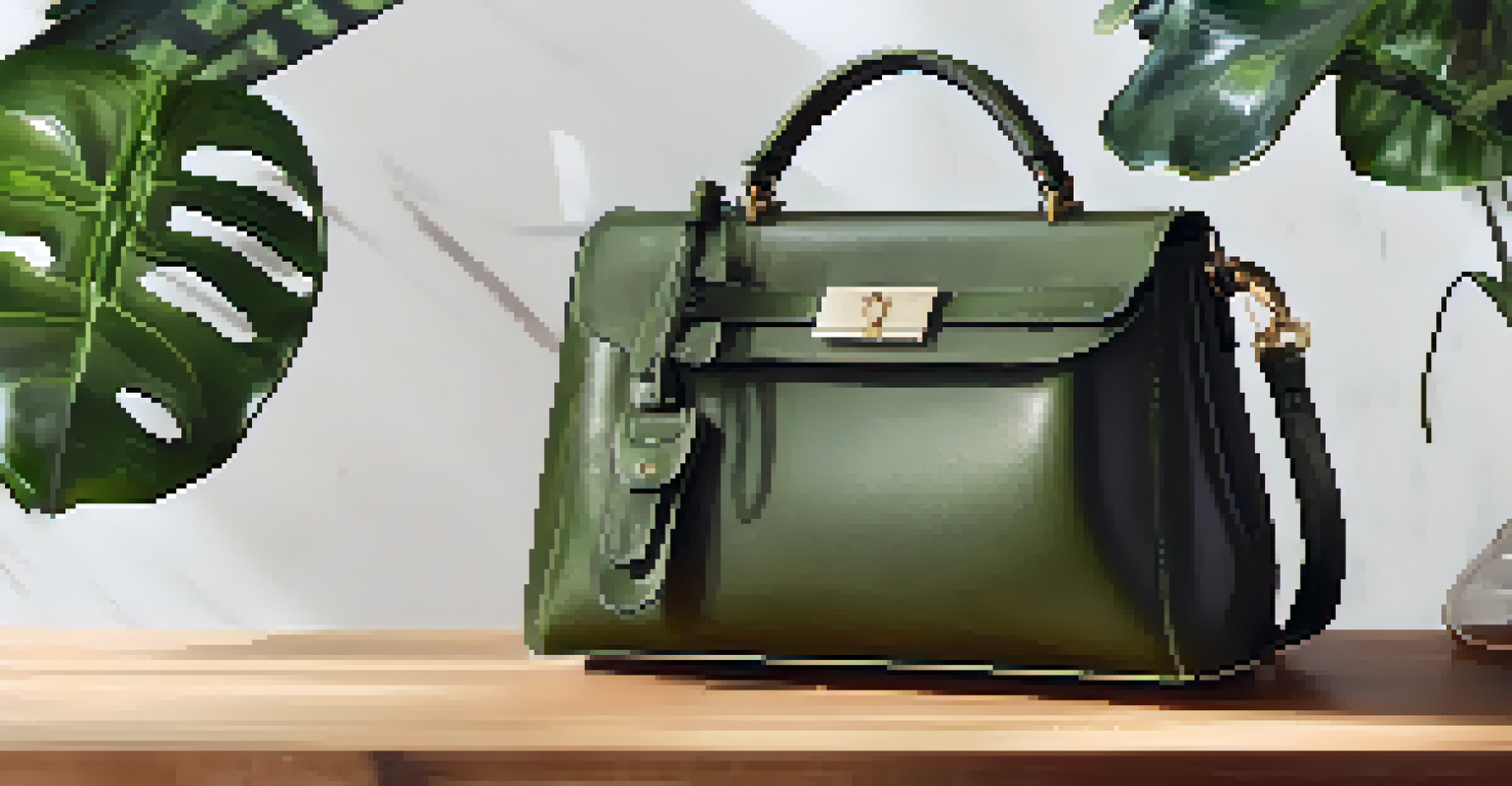The Importance of Ethical Sourcing in Luxury Goods

What is Ethical Sourcing in Luxury Goods?
Ethical sourcing refers to the process of ensuring that the products we buy are made in safe and fair working conditions. In the luxury goods sector, this means sourcing materials and manufacturing items in ways that respect both people and the planet. It’s not just about high-quality products; it’s about the story behind them.
Ethical sourcing is about ensuring that the origins of our products reflect our values as much as the products themselves.
For example, luxury brands might source materials like silk or leather from suppliers who uphold humane labor practices. This commitment not only enhances the brand's reputation but also aligns with the values of increasingly conscious consumers. Understanding this foundational concept is key to appreciating the broader implications of luxury purchases.
Ultimately, ethical sourcing challenges the traditional notion of luxury, pushing us to consider the impact of our choices. It raises important questions about the origins of materials and the lives of workers involved in the production process, inviting us to rethink what luxury really means.
Consumer Demand for Ethical Practices
In recent years, consumers have become more aware of the ethical implications of their purchases. The rise of social media has amplified voices demanding transparency from brands, especially in the luxury market. Customers are now seeking products that resonate with their values, prompting luxury brands to adopt ethical sourcing practices.

A notable example is the increase in demand for sustainably sourced materials, such as organic cotton or recycled metals. This shift not only caters to consumer preferences but also fosters a sense of community among like-minded shoppers. It’s a powerful reminder that our choices can drive significant changes in the industry.
Ethical Sourcing Redefines Luxury
Luxury brands are increasingly prioritizing ethical sourcing, ensuring products are made in fair conditions that respect both people and the planet.
As luxury brands respond to this demand, they often share their sourcing stories, creating a deeper connection with consumers. This transparency helps build trust and loyalty, as buyers feel more empowered knowing their purchases contribute to positive social and environmental outcomes.
The Impact on Brand Reputation
Brand reputation is everything in the luxury market, and ethical sourcing plays a vital role. A brand that prioritizes ethical practices often garners more respect and admiration from consumers. This can lead to increased sales and a loyal customer base, as people want to associate with brands that reflect their values.
The future of luxury is not just about what we buy, but how it impacts the world around us.
Conversely, brands that neglect ethical sourcing may face backlash, resulting in a damaged reputation. In today’s interconnected world, negative news spreads quickly, and luxury brands can find themselves under scrutiny if they fail to uphold ethical standards. This reality highlights the importance of being proactive in ethical sourcing efforts.
Building a strong reputation through ethical sourcing can also enhance a brand’s storytelling. When a luxury brand can proudly share its ethical journey, from sourcing to production, it creates an engaging narrative that resonates with consumers and distinguishes it from competitors.
Environmental Considerations in Sourcing
The luxury goods industry has a significant environmental footprint, making ethical sourcing an essential aspect of sustainability. Brands are increasingly recognizing the need to minimize their impact on the planet by choosing eco-friendly materials and practices. This approach not only benefits the environment but also appeals to eco-conscious consumers.
For instance, some luxury brands are opting for biodegradable materials or embracing circular fashion by recycling old products into new ones. These initiatives demonstrate a commitment to reducing waste and promoting sustainability. As a result, brands can contribute to the global efforts against climate change.
Consumer Demand Drives Change
As consumers seek transparency and sustainability, luxury brands are adopting ethical practices to align with their values and build trust.
Moreover, environmentally responsible sourcing can lead to innovative product designs that attract consumers. Luxury brands that prioritize sustainability often create unique offerings, setting themselves apart in a crowded market and appealing to a growing demographic of environmentally conscious shoppers.
Challenges of Implementing Ethical Sourcing
While the benefits of ethical sourcing are clear, implementing these practices is not without its challenges. Sourcing materials ethically can sometimes be more expensive, which may deter brands from adopting these practices. However, the long-term benefits often outweigh the initial costs, as consumers are willing to pay a premium for ethically sourced products.
Moreover, ensuring transparency and accountability within the supply chain can be complex. Brands must navigate various regulations and standards while building relationships with suppliers who share their commitment to ethics. This requires ongoing effort and vigilance to maintain ethical practices throughout the entire production process.
Despite these challenges, many luxury brands are overcoming obstacles by collaborating with NGOs and ethical organizations. By working together, they can share best practices and resources, ultimately creating a more ethical and sustainable luxury industry.
The Role of Certifications and Standards
Certifications and standards play a crucial role in ethical sourcing, providing consumers with assurance that brands are genuinely committed to ethical practices. Organizations like Fair Trade and the Global Organic Textile Standard (GOTS) set guidelines that help brands maintain ethical production processes. These certifications can enhance a brand's credibility and appeal.
For instance, a luxury brand that sources materials with Fair Trade certification can confidently market their products as ethically produced. This not only attracts conscientious consumers but also fosters a sense of community among brands and buyers who value ethical practices. Certifications serve as a beacon of trust in an often murky industry.
Challenges in Ethical Implementation
While ethical sourcing offers numerous benefits, brands face challenges such as higher costs and complex supply chain management.
As consumers become more educated about ethical sourcing, they increasingly seek out products that carry these certifications. This trend encourages more brands to pursue ethical sourcing, creating a ripple effect throughout the luxury market and promoting a culture of responsibility.
Future Trends in Ethical Sourcing for Luxury Goods
As the luxury market evolves, so too does the concept of ethical sourcing. Future trends indicate a growing emphasis on transparency and traceability, with brands investing in technologies that allow consumers to trace the origins of their products. Innovations like blockchain can provide a reliable method to verify ethical sourcing claims.
Additionally, the intersection of luxury and technology is leading to new initiatives, such as digital storytelling and augmented reality experiences. These advancements not only engage consumers but also highlight a brand's commitment to ethical practices. The future of luxury goods is not just about aesthetics; it's about values and ethics.

Ultimately, the trajectory of ethical sourcing in luxury goods suggests a more conscientious future. As brands continue to embrace these practices, consumers can expect to see an industry that prioritizes not only quality but also the well-being of people and the planet.